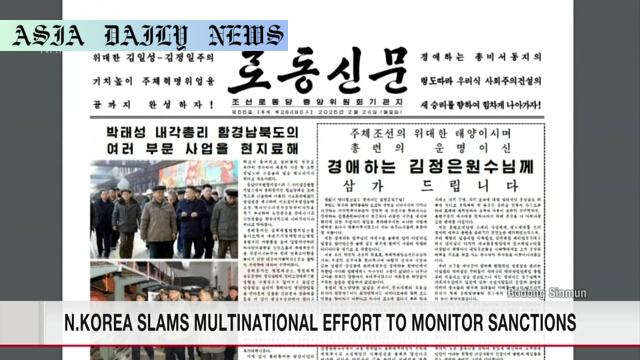Sanctions: North Korea sharply criticized an 11-nation group’s monitoring of UN sanctions, accusing them of illegitimate operations.
North Korea’s foreign ministry criticized a newly convened sanctions monitoring team.
The team, composed of 11 nations, met last week in Washington.
North Korea dismissed the group as illegal and illegitimate.
The ministry warned of consequences for those involved.
A report on sanctions violations is expected later this year.

Introduction to North Korea’s Criticism
North Korea has strongly rebuked the formation and activities of an 11-nation team tasked with monitoring UN sanctions on Pyongyang. This team, including nations such as Japan, the United States, and South Korea, convened in Washington last week. The North Korean foreign ministry expressed its discontent through a detailed statement issued by the chief of its External Policy Office. The statement described the team as “illegal and illegitimate” in both its existence and objectives.
History of UN Sanctions Monitoring
Previously, a UN Security Council expert panel was responsible for monitoring sanctions imposed on North Korea. However, when its activities ceased last year, the vacuum was filled by this newly formed 11-nation consortium. The team aims to intensify international scrutiny on violations of existing sanctions, with the goal of reinforcing compliance across global networks. North Korea has consistently opposed such monitoring efforts, perceiving them as biased and politically motivated.
North Korea’s Accusations
The North Korean government has accused the monitoring team of operating outside of international standards and laws. In a scathing critique, the ministry highlighted what it views as the group’s unjustified interference in North Korea’s sovereignty. It reiterated that Pyongyang is no longer interested in diplomatic negotiations aimed at lifting sanctions, as it deems such efforts futile given the current geopolitical climate.
The Warning from Pyongyang
The statement issued by Pyongyang warned of dire consequences for those involved in what it labeled as unlawful activities. It emphasized that the United States, in particular, would face the brunt of North Korea’s disapproval. This strong rhetoric is not new from the country, which often uses similar warnings as a deterrence mechanism against perceived aggressions.
Monitoring Team’s Future Goals
The 11-nation sanctions monitoring panel has an ambitious agenda, which includes drafting and releasing a comprehensive report on sanctions violations by midyear. This report is expected to shed light on the state of compliance with UN sanctions, offering insights on areas that need enhanced oversight. Such efforts, however, are likely to provoke further backlash from Pyongyang.
Conclusion
The ongoing battle between North Korea and the international community over sanctions demonstrates the complexities of modern diplomacy. While the monitoring team aims to uphold global security and accountability, it faces substantial resistance from Pyongyang, which views such initiatives as hostile actions undermining its sovereignty. The outcome of these efforts will be watched closely, as they may shape the future course of global relations with North Korea.
Commentary
The Global Impact of Sanctions Monitoring
The response from North Korea to the formation of an 11-nation sanctions monitoring group underscores the challenges of international diplomacy. Sanctions have long been a tool for ensuring compliance with global norms, but their implementation and monitoring often provoke strong reactions, as seen in this case. North Korea’s labeling of the group as “illegal” aligns with its historical narrative of resisting external scrutiny.
Challenges for the Monitoring Team
The 11-nation team faces a daunting task. Balancing the enforcement of sanctions with the need to avoid escalations requires delicate strategy. Moreover, North Korea’s warnings highlight the potential for further tension. The team must navigate these complexities while maintaining credibility and neutrality—a challenging but necessary goal to uphold the integrity of international efforts.
Broader Implications
This development also raises questions about the effectiveness and ethics of global sanctions. While they aim to curb activities deemed dangerous to international peace, they often deepen the divide between nations. Pyongyang’s disinterest in dialogue is a stark reminder of how sanctions, when not paired with diplomacy, can harden stances rather than soften them.
Conclusion
As this issue unfolds, it will serve as a critical test for the global community’s approach to sanctions enforcement. Can such measures truly drive change without worsening conflicts? This question will likely shape not only the future of North Korea’s relations but also broader discussions on the role of sanctions in modern diplomacy.


